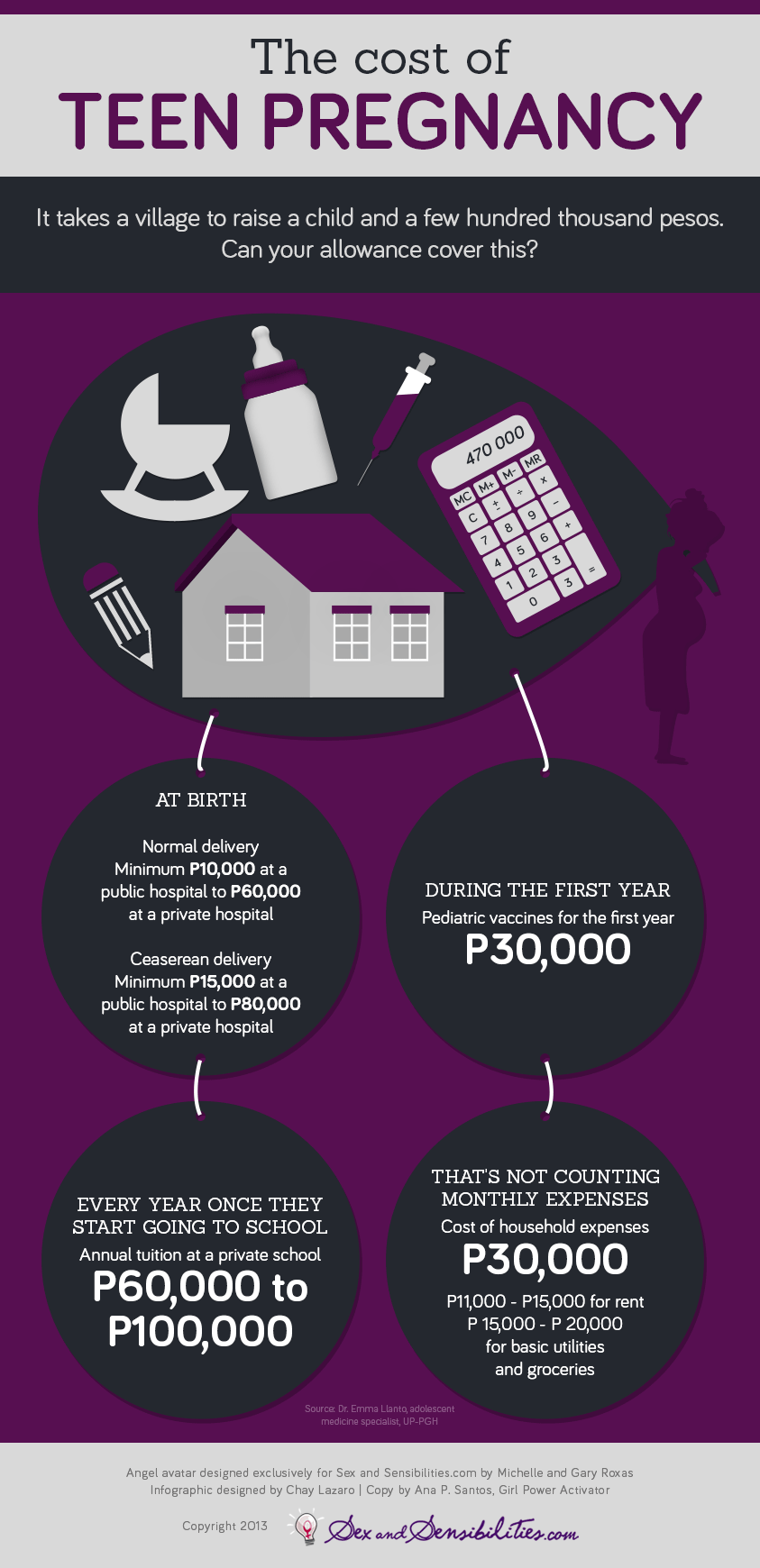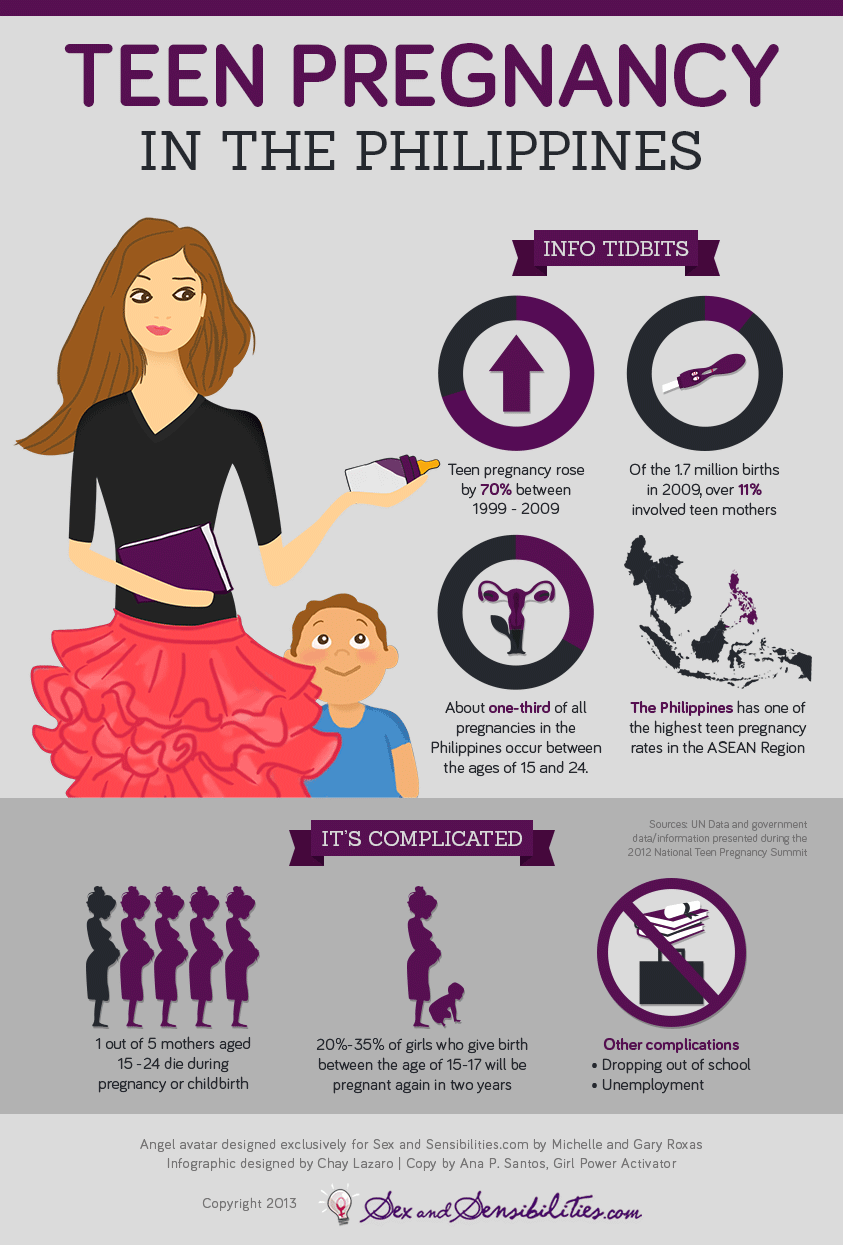SUMMARY
This is AI generated summarization, which may have errors. For context, always refer to the full article.

The cooing and the gushing in the room start almost immediately when the slide is flashed on the screen. Wide-eyed, round, soft and fuzzy, the picture of the baby makes the room filled with some 200 college students melt.
The presenter, Dr. Emma Llanto of UP-PGH and the Society of Adolescent Medicine the Philippines, joins in, “So cute, no?” she asks then proceeds to read out loud the quote on her slide: “A new baby is like the beginning of all things – wonder, hope, a dream of possibilities.”

Reality check
“Babies are certainly wonderful,” she adds before launching into the reality part. “But having one will have financial, emotional, social and moral implications on you and your future.”
Llanto breaks down these implications, starting with the financial aspect.
“Delivering a baby, hospital bills start at P20,000-P25,000 and that’s a normal delivery at my hospital, PGH,” says Llanto, explaining that a multiplier will have to be added to normal delivery in a private hospital.
The cost of delivery is only the beginning.

Llanto’s list includes cost of vaccination and visits to the pediatrician (P30,000 in the first year) and modest cost of living at P25,000 – P30,000 per month.
“And then they start going to school,” says Llanto who takes her cue from the members of the audience and pegs the cost of an exclusive private school at around P100,000 per year.
“That’s financial part. How will having a baby affect your every day life?” Llanto asks the audience before she goes on to list baby chores and their frequency. “You’ll have to stay up nights—for the next 2-3 years; you’ll need to breastfeed every 2-3 hours round the clock—about 10-12 times in a day, and change diapers about 6 times a day.”
By the time that Llanto explains the medical complications of early pregnancy, the earlier cooing and gushing are replaced with a hushed silence possibly brought on by a stupefied realization that it does take a village…and a small fortune to raise a child.
Not Only the Young and the Reckless
In the absence of sexual education that is scientific, premised on responsible choices and accountability, Llanto’s fact-based presentation serves as a reality check that these young people need.
READ: Urgent Need to Address Teen Pregnancy
Actually, it’s a reality check needed by teens and adults alike. In the Philippines, where 4 babies are born every minute and there are more than 3 million pregnancies in a year, accidental pregnancy is not limited to the young and reckless.
I still remember Representative Joey Zubiri during one RH meeting a couple of years ago, justifying the passage of what was then a bill. Boldly daring every one in the room, he asked, “Every single person in this room knows someone or is related to someone who has more children than they can afford and provide for. Some of us here are even helping to provide for those children.”
Like Dr. Llanto’s lecture, the facts caused a hush in the room filled with adults as reality set in.

More than planned
Guttmacher Institute, a US-based reproductive health research organization estimates that in 2008, around 3.4 million Filipino women became pregnant, and 54% of them—some 1.9 million women—did not want to have a child so soon or at all. On the average, women have one more child than they actually want or planned for.
As the numbers will tell you, having even just one additional child can wreck havoc on finances and has huge ramifications on one’s life. But why are we so… casual…so fatalistic about a life-changing event that entails a lifetime of responsibility.
This reality check is made easier to accept when we are taught and made to believe that babies are blessings–as if human life was manna from heaven that just happen to suddenly fall into our laps. ‘Babies are blessings’ is the Philippine version of the stork coming to visit and yet everyone knows and accepts that babies don’t come from storks.
If babies are truly the blessings that we believe they are, each and every pregnancy should be wanted and properly planned for. If babies are the blessings that we truly believe they are, bringing another human being into this world, caring for him or her and nurturing them to become responsible adults would be a seen as a matter of choice, not a matter of chance. – Rappler.com
The author would like to thank Dr. Emma Llanto for allowing her to cite the presentation she made at the “Dare to Ask: School Symposium on Teen Issues on Health, Sexuality, Population and Development” sponsored by the Foundation for Adolescent Development (Teen FAD). The author and Dr. Llanto were both speakers at the said symposium.
Ana P. Santos is a regular contributor for Rappler aside from this Dash of SAS (Sex and Sensibilities) column. Follow her on Twitter at @iamAnaSantos.
Baby image from shutterstock
Add a comment
How does this make you feel?
There are no comments yet. Add your comment to start the conversation.